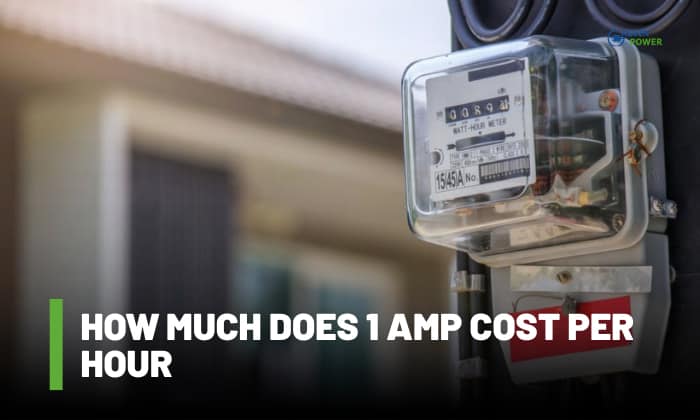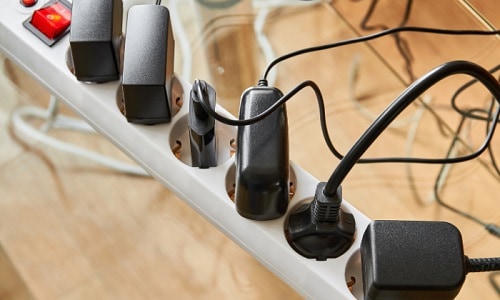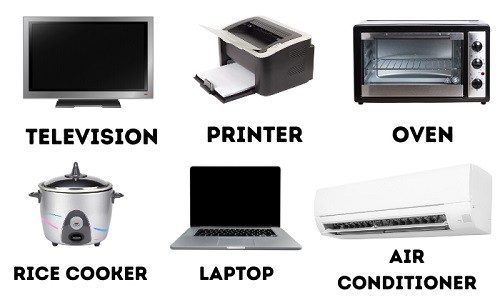Have you ever wondered how much it costs for each amp that your appliances consume? Even though the electricity cost is measured by kWh, there is a way to know it.
How much does 1 amp cost per hour? Knowing the answer to this question will help you decide how to manage your appliances better.
In this article, we will get into the simple method of calculating the cost of electricity for every amp drawn by your electronic devices. So, let’s get right into it.
Table of Contents
Calculating the Cost of 1 Amp Per Hour
As previously stated, the cost of power is measured in kilowatt-hours (kWh). As a result, we need to use an amp cost calculator to calculate the cost of utilizing one amp per hour. In this scenario, we can apply the formula:
\[ \text{Amps} \times \text{Volts} \times \text{Usage Hours} / 1000 = \text{kWh} \]
or
\[ \text{Wattage} \times \frac{\text{Usage Hours}}{1000} = \text{kWh} \]
For example, a device draws 1 amp per hour in a 120v circuit. The calculation will be:
\[ 1\, \text{Amp} \times 120\, \text{V} \times 1\, \text{hour} / 1000 = 0.276\, \text{kWh} \]
Now, we can estimate electricity cost by multiplying the kWh rating by the price per kWh rating in your state. In such instances, the average electricity rate per kWh in the United States is 23 cents.
In this case, to get the estimated cost per amp, we use above, we need to multiply the 0.276 kWh by .23 cents to get the price per amp of 0.063 cents.
In case you want a better understanding of your electrical costs, an electricity cost calculator will assist you in calculating the cost of your energy consumption.
Input parameters such as the number of appliances, their power ratings, and the length of time are in use to get an estimated cost breakdown.
These calculators take into account factors such as your local electricity pricing, allowing you to easily calculate the expected cost of your expenses and understand how the computation works.
Factors That Affect the Cost of Electricity
Various factors determine the cost of power, which varies from household to household. Understanding these characteristics can help you control your energy consumption and make informed usage decisions.
Here are some of the major elements that influence power cost:
1. Weather
Seasonal variations like winter and summer can spike your home’s heating and cooling system usage. In this case, your machine will usually work harder to maintain the comfort of your home.
2. Number of People in Your House
Generally, more occupants increase electronic device usage in your home.
3. Living Habits
Daily routines and how you use your electronics also play a significant role in your energy consumption. For example, simple adjustments like turning off lights, using energy-efficient appliances, and unplugging electronics after use can make a substantial difference in your monthly bill.
4. House Characteristics
House characteristics include proper insulation, well-maintained furnace filters, and more, which can reduce electrical demand.
5. Electronic Devices
In general, older devices consume more power than newer models with updated energy efficiency technology.
Conclusion
In conclusion, knowing how much does 1 amp cost per hour is an easy job requiring little consideration. All you need to do is to get the kWh rating first and know the electricity rate in your state.
However, understanding electricity costs isn’t limited to calculation alone. Factors such as weather, household size, living habits, home characteristics, and electronic devices all shape your energy expenses. Considering these aspects gives you a thorough understanding of how your choices impact your bills.
Next time, I recommend using more reference points to appear more objective in your statements.

I am Edwin Jones, in charge of designing content for Galvinpower. I aspire to use my experiences in marketing to create reliable and necessary information to help our readers. It has been fun to work with Andrew and apply his incredible knowledge to our content.







